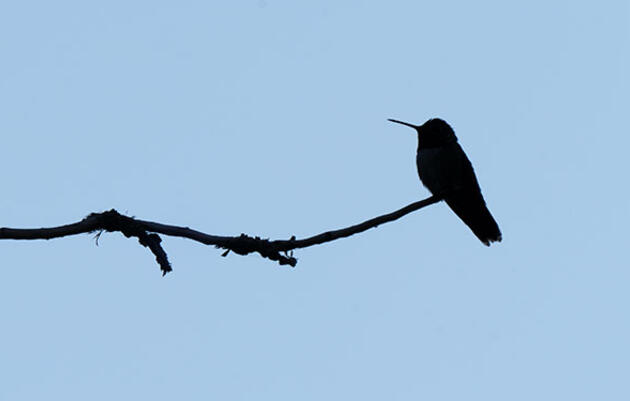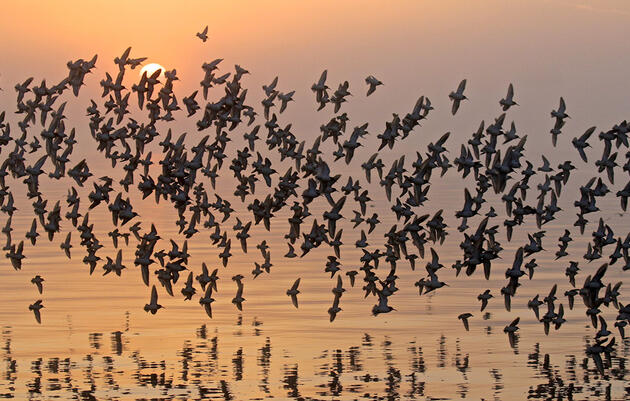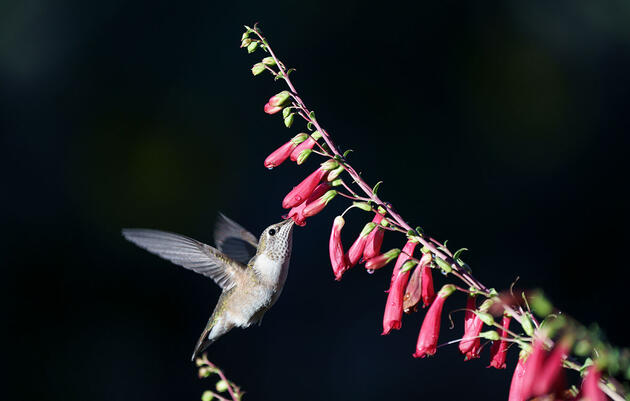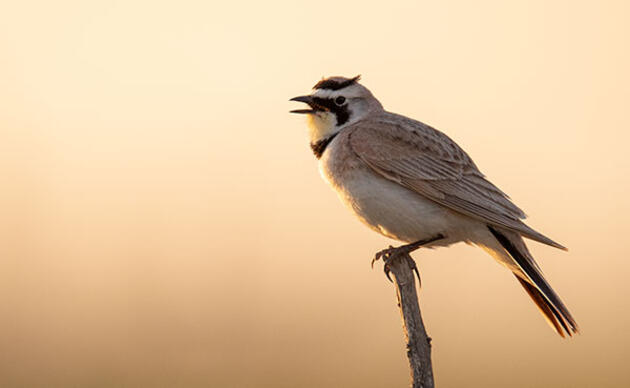From the eye-catching flash of a bright orange Bullock’s Oriole, to the sweet whistle of a Yellow Warbler, to the soft thwump of a hundred Sandhill Crane wings flapping in unison, spring migration is an exciting time in the birding world. Despite the anticipation for summer and the hustle and bustle of finishing up another school year, taking time to not only watch migrations but to actively help feathered friends have a safer journey along the way can be easy and rewarding.
Here are four simple yet effective ways that you can aid migrating birds along their journey this spring.
Keep Cats Indoors
Though warmer temps and longer days are tempting, cats kill an estimated 2.4 billion wild birds in the United States each year, according to the U.S. Fish and Wildlife Service. If you do not have a cat of your own, gently encouraging neighbors, friends, and family with outdoor cats to keep them inside during migration or to let them out on a fenced-in patio space can protect songbirds passing through, especially near feeders.
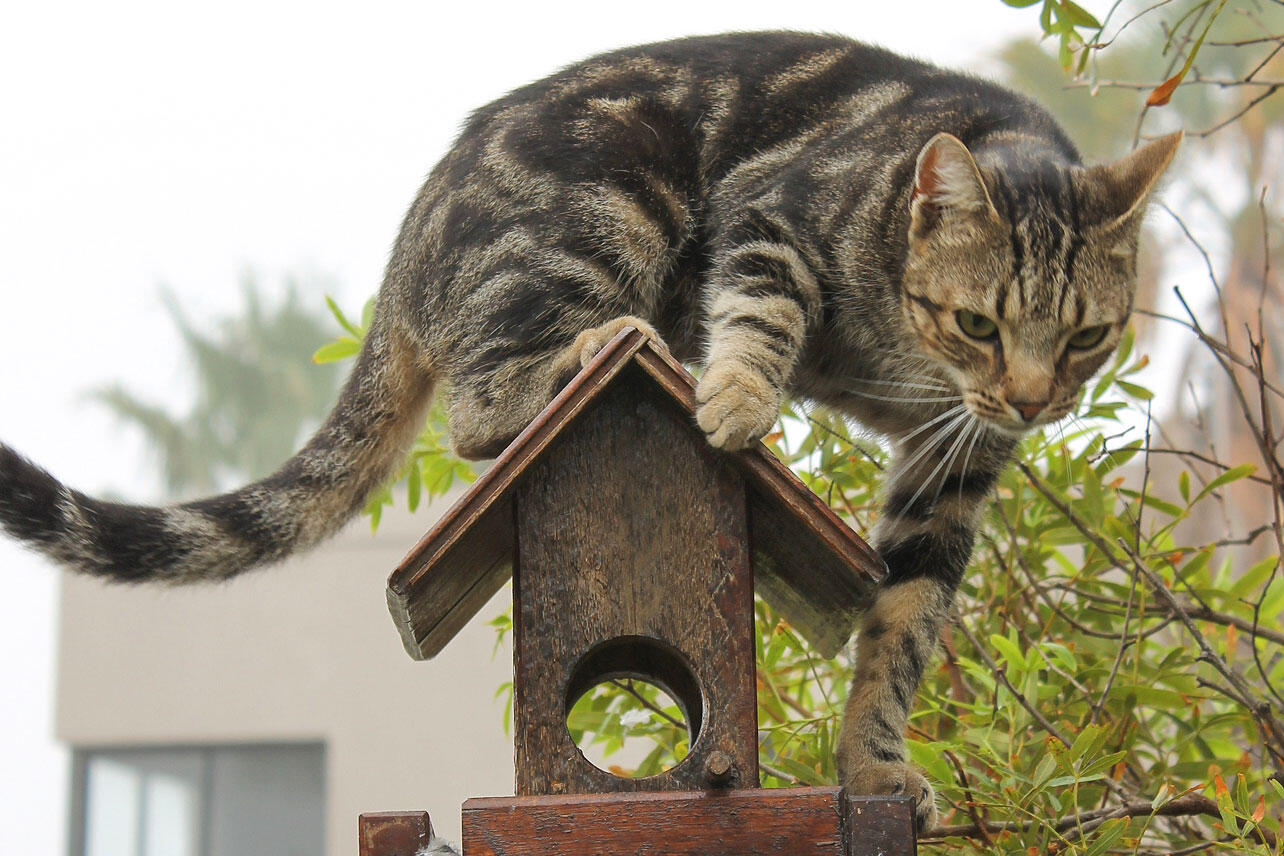
Turn Off Lights at Night
Did you know that the majority of birds migrate at night? Bright lights can disorient migrating birds, causing them to veer into buildings or stray from the correct migration route. This is a big threat to migratory birds, but few people know about it. Help spread the word and learn more here.

Make Windows Visible
To a migrating bird, clear glass is indistinguishable from surrounding habitat. Putting up streamers or marking the window itself—with stickers, paint, or some type of marker—can alert a bird to a window and prevent collision. Even closing blinds can help break up the image of the glass surface. During migration, check areas under large, unmarked windows for stunned birds. Also keep an eye on glass for smudges or feathers from collisions.

Plant Native Plants
Shrubs, bushes, and trees make great perches for resting. Flowers provide energy for hummingbirds and attract insects, a source of energy for hungry and tired birds. Plants native to the area are more adapted to the local climate, require less water, and help prevent more erosion than non-native plants. Find plants native to your zip code or visit Audubon Rockies’ Habitat Hero program for more resources.
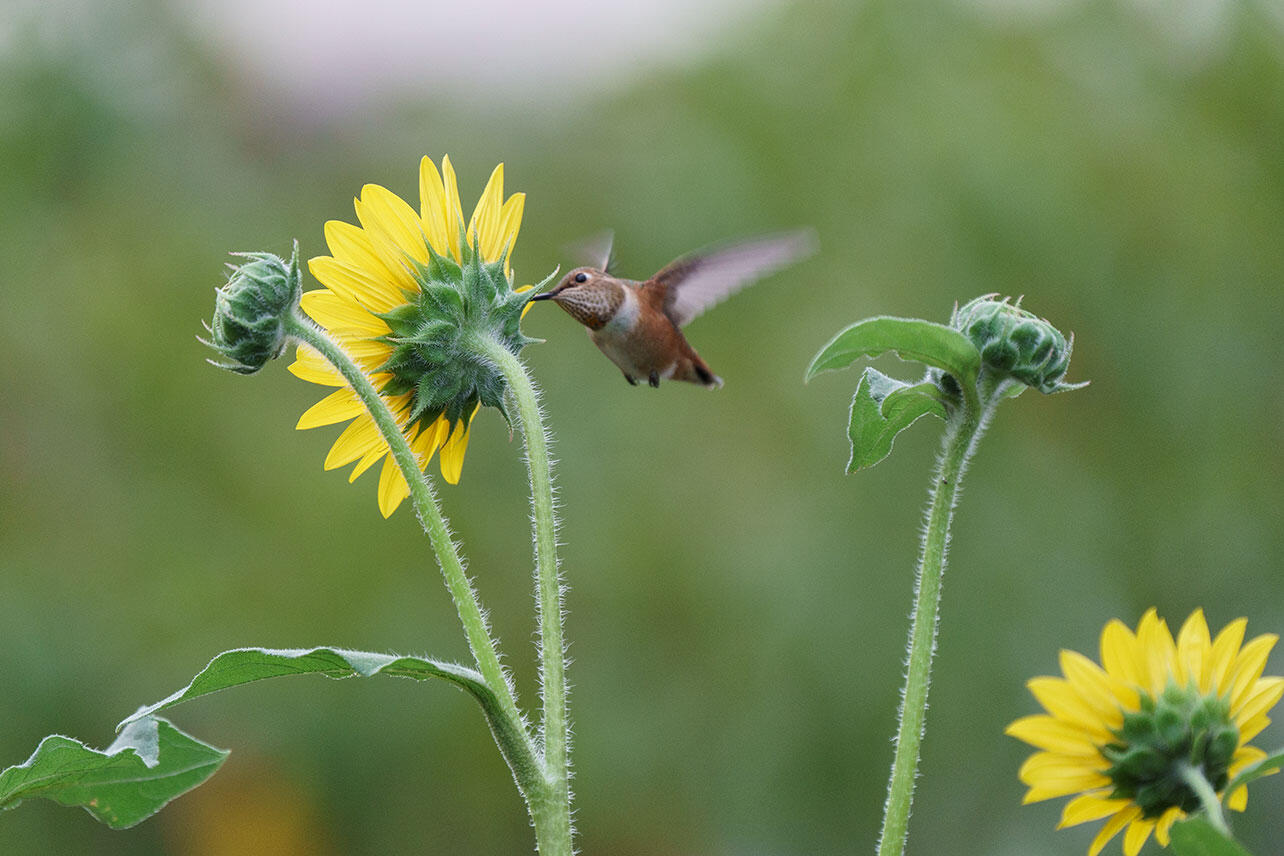
Life can get busy sometimes, but birds are busy too! By taking just a little time to flip a light switch or pull down the blinds, some seemingly small actions can make a big impact on migrating birds this spring.


